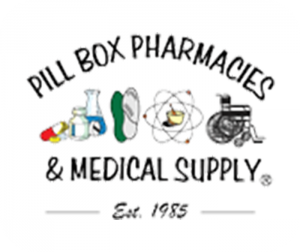Heavy Legs
Are you asking yourself why your legs often feel heavy and uncomfortable? Discomfort of the legs, like leg pain, heaviness, and/or leg tiredness, as well as swollen feet and ankles, can be first signs of venous disorder. Medical compression can help.

Heavy, tired, aching legs? Swollen feet and ankles? This can be an early sign of a venous disorder. You may experience the symptoms in the evenings, after sitting or standing all day. Often they get worse during summer at high temperatures. Take care of your leg health from the moment your legs start to feel incomfortable, and talk to your health care professional. The recommended standard treatment for your leg health: medical compression.
Heavy Legs: What are the symptoms?
Heavy legs are characterized by a feeling of discomfort and/or pain in your legs. Your legs may ache and/or feel tired. These symptoms occur especially when you are sitting or standing for prolonged hours, for instance at work.
This applies to all kind of professions in which mobility is restricted, e.g. in an office, as a bus driver, etc. or when you have to stand for several hours a day, e.g. as a hairdresser, surgeon, nurse, or any other service professional.
What is the cause of Heavy Legs?
Discomfort caused by heavy and/or swollen legs means that the venous return in your veins is compromised. The calf muscle pump system that supports the blood transport from the feet towards your heart might not have been activated enough while you did stand or sit in the same position for extended periods.
Heavy legs might be a sign of early venous disorder. Venous disorder or venous insufficiency is caused by unproperly closing vein valves and blood pooling in the veins. It may show symptoms such as
- pain
- heaviness
- tingling
- itching
Venous insufficiency is a progressive disease. Left untreated, it can lead to – sometimes serious – complications:
Which factors influence leg health?
Long distance traveling, pregnancy, menopause and prolonged sitting or standing are aggravating situations. Many other factors can unfavorably influence leg health. Here’s some of them:
- Gender: Women are twice as likely to develop varicose veins than men. In fact, 57% of all women suffer from circulatory problems, compared to 26% of the men.
- Age: The risk of developing venous disorders increases with age as the cells in the vascular system are aging as well. From the age of 35, the risk of spider veins increases.
- Family history: If one of your family members suffers from venous disease, you have a higher risk of becoming affected at some point in your life. If both parents suffer from venous problems, the risk increases to over 79%.
- Obesity: Obesity is an important risk factor for the development of vascular disorders, The risk for venous insufficieny multiplies by 10 in case of obesity.
Heavy Legs: What can I do?
In general, you may adopt some habits to relieve or to avoid the feeling of heavy, uncomfortable legs:
- Try to limit prolonged standing or sitting.
- Avoid high heels.
- Do not cross your legs.
The recommended treatment for heavy legs: medical compression.
Medical compression is an easy, drug-free solution that fits most body shapes. A medical compression product is an elastic textile (sock, stocking, or pantyhose) that exerts an active pressure along the leg promoting venous circulation and the return of blood to the heart.
From the very first use, you should feel an immediate benefit: your pain and heavy leg sensations decrease. Medical compression also aims to prevent complications.
Note: If you frequently suffer from leg pain or heavy, tired, and unpleasant-feeling legs, and if the symptoms do not disappear if you elevate the legs in the evening or after a good sleep, you should see a doctor to check if a more progressed state of venous disorder might be the cause of your heavy legs.
By means of ultrasound, the doctor visualizes the blood flow in your veins and checks which part of your venous system in the legs might be damaged.
Sigvaris compression products can help you during the day to avoid uncomfortable, heavy legs, particularly if you are traveling long distances or if you are working for a prolonged duration in a sitting or standing position.
Summary
Any feeling of discomfort in the legs can be a sign of a venous disorder.
Basic medical knowledge on venous disorders
- With the term Chronic Venous Disorder (CVD) we describe a long-standing condition involving impaired venous return.
- If vein valves don’t close properly, a reflux results: the blood leaks downwards and stagnates in the vein, thereby leading to venous hypertension. This condition is known as chronic venous insufficiency (CVI) which may cause edema, skin change, and, in some cases, ulcerations.
- If left untreated, chronic venous insufficiency can result in the formation of serious disorders, including phlebitis and pulmonary embolism. To distinguish the different manifestations of CVD, the CEAP classification system is used.
- Acute venous disorders usually occur without pre-existing conditions, but they can also be triggered by chronic venous disorders. In any case, medical treatment is immediately required. Acute venous disorders include superficial thrombophlebitis, deep vein thrombosis (DVT), pulmonary embolism, post-thrombotic syndrome, and variceal bleeding.

